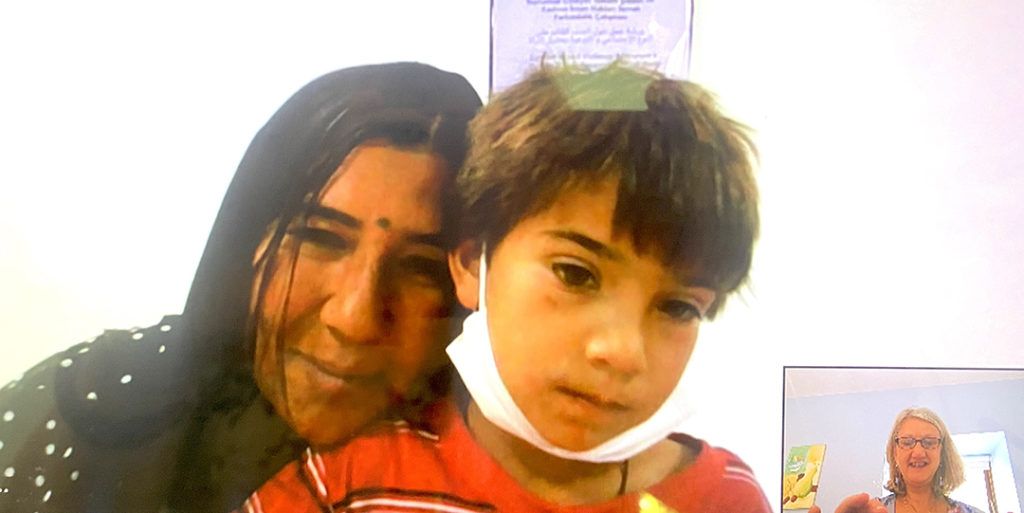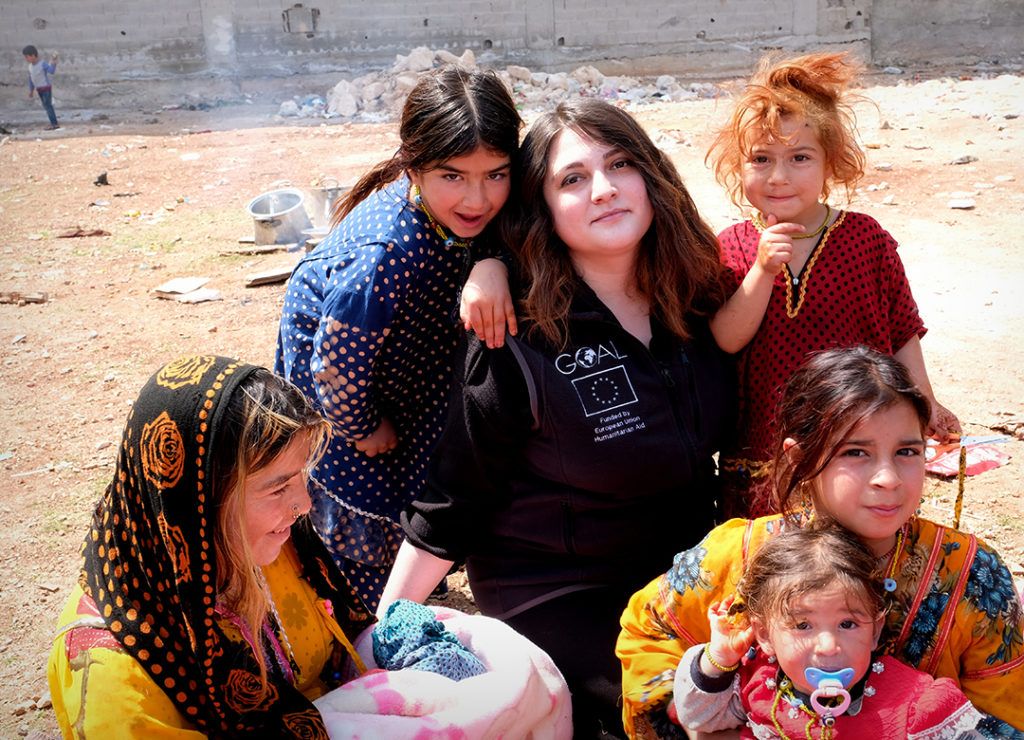 Blogs
Blogs
June 18, 2021 • 5 min read
By Miriam Donohoe
It was surreal to be sitting so comfortably in my kitchen in Ireland on a video call with another mother living in such dramatically different circumstances. Shofa joined me from a camp in Turkey’s South Eastern Anatolia region, close to the Syrian border.
Shofa came on the screen – feisty, determined, animated, and keen to tell her story. She was supported by GOAL Deputy Programme Manager, Hazal Aydis, who translated.
Struggling for acceptance
A smiley face invaded the screen. It was Shofa’s youngest son, Kemal, aged eight. He was giddy and curious to see who his mother was chatting to. Unlike eight-year-olds in Ireland this was a novelty for Kamal. For somebody who lives in a tent, and forages for food with his family to make a living, being “online.” was a rare thing.
We had a little back and forth.
“What age are you” I ask?
“I don’t know” he replies. Through the translator his mother explains that she is unsure of the exact birth dates of all her children.
“And are you in school,” I follow up.
“No” says Kamal.
Shofa adds: “My children don’t go to school because they are not accepted in the community.”

Shofa and her son Kamal speaking to Miriam via video call
Shofa herself is aged around 37 or 38 – she doesn’t know her age for sure. She is one of several nomadic and semi-nomadic Syrian refugees in Turkey who told their stories for a moving new GOAL documentary and photo exhibition launched by former President of Ireland and Chair of the Elders Mary Robinson.
Forced to flee their home
Shofa is from the Roma Abdal nomadic group, which has a culture steeped in music and tradition. In 2013, two years after conflict broke out in Syria, life changed dramatically for Shofa and her family.
A mother of four, pregnant with her fifth child, a bomb hit her household in northwest Syria, seriously injuring her husband, Hasan. She fled with their children to safety across the border to Turkey.
There Shofa and her four young children – Mohammed, Dilan, Ahmed and Berivan – set up “home” in a tent in Gaziantep.
Some months later she was joined by her husband who held her hand in their tent as her fifth child, Kemal, was born.
Shofa picks up her story: “Life has been so tough in the last eight years since we came here. When I arrived we had nothing. We did not have ID so we could not access services. With the help of Turkish people, I was able to set up a tent. It was the only tent here at the time. Now there are 30.”
Surviving day-to-day
To survive day-to-day Shofa and her family forage for food where it has been discarded by others. All of her children, including her youngest, take part.
“We dig with our hands, or sometimes knives, to get what we can. Paper or plastic for recycling. Sometimes we find clean food that we can eat,” Shofa says.
“We sell on what we collect to another guy. We just take what we get. Often when we get home often, we don’t have soap or detergent to get clean ourselves or our clothes.”
“When we can we do seasonal agricultural work to make some money. It is tough. We never know from day-to-day what we will earn. We never know if we will have enough to eat. This is our life.”
“All I want from life are better conditions for me and my family. I have the smell of garbage in my brain. I sleep with it. I wake up to it. But we have no choice. We must do this in order to eat and to survive,” Shofa continues.
Support from GOAL
Shofa says they are getting support from GOAL through the European Humanitarian Aid LINK programme, which connects vulnerable refugee communities with support services.

Asli from GOAL Turkey plays with children from the Şanliurfa camp
Over 3.6 million Syrian refugees have crossed the border to Turkey since the Syrian conflict began in 2011. They are often left vulnerable to a number of protection risks largely due to a lack of access to information regarding their rights, their obligations and the services available to them within the Turkish state.
GOAL’s LINK programme in Turkey works to ensure the most vulnerable groups of refugees and nomadic groups are supported with services such as healthcare and education.
GOAL staff are working to minimise protection risks to these most vulnerable refugee communities by referring and accompanying them to services suitable to their needs. Staff provide information regarding their rights, as well as legal counselling and psychosocial supports.
Home from Home
Shofa says she was happy to be part of GOAL’s Home from Home documentary shining a light on the plight of Syrian refugees in Turkey.
“We need to talk about our situation. It is important that the world knows. I thank GOAL for all their support. But life needs to change so my children will have a better future.”
Before we sign off there is a final wave from Kemal. I tell Shofa that I am the mother of two grown up children, and the grandmother of a two-year-old. It is almost impossible for me to appreciate how life is for her family. I acknowledge that my children have had a privileged upbringing.
Shofra nods. She is emotional, and wipes tears from her face.
“Thank you for listening” she says. “All we want is support and food so we can live. And hope for the future.”
You can support GOAL’s work with families like Shofra’s with a donation today.
